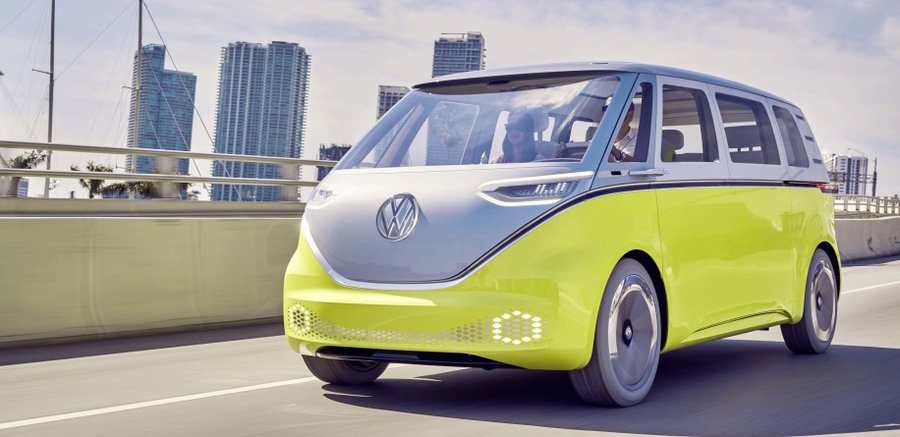As such, it's the appropriate venue for computer tech company Nvidia to announce deepening autonomous vehicle partnerships with both Uber and Volkswagen.
Let's start with VW. Nvidia, which produces, among other things, processors for autonomous driving systems, will provide its technology to the German automaker for vehicle automation and features enabled by artificial intelligence. VW plans to launch a number of new all-electric vehicles, starting with the I.D. Crozz in 2020, followed by the highly anticipated I.D. Buzz in 2022. VW will use Nvidia's technology to develop and integrate autonomous driving systems in its growing EV lineup.
Nvidia will also work with VW on "Intelligent Co-Pilot" capabilities. Future Volkswagen vehicles could incorporate features like facial recognition, improved voice control, gesture controls and gaze tracking for driver distraction monitoring, all powered by Nvidia AI. "In just a few years, every new vehicle should have AI assistants for voice, gesture, and facial recognition as well as augmented reality," said Nvidia CEO Jensen Huang. "Working with Volkswagen, we are creating a new generation of cars that are safer and more enjoyable to ride in than anything that has come before."
Nvidia also announced a partnership with Uber, with whom it has quietly been working on the company's self-driving cars. Now, the partnership is official, as Uber has picked Nvidia to provide the AI computing systems for its fleet of self-driving taxis and freight trucks. Uber has been working on autonomous driving since 2015, and used Nvidia's graphics processing unit (GPU) in its first self-driving Volvo XC90s. Now, Uber has completed more than two million miles of autonomous driving.
Related News

